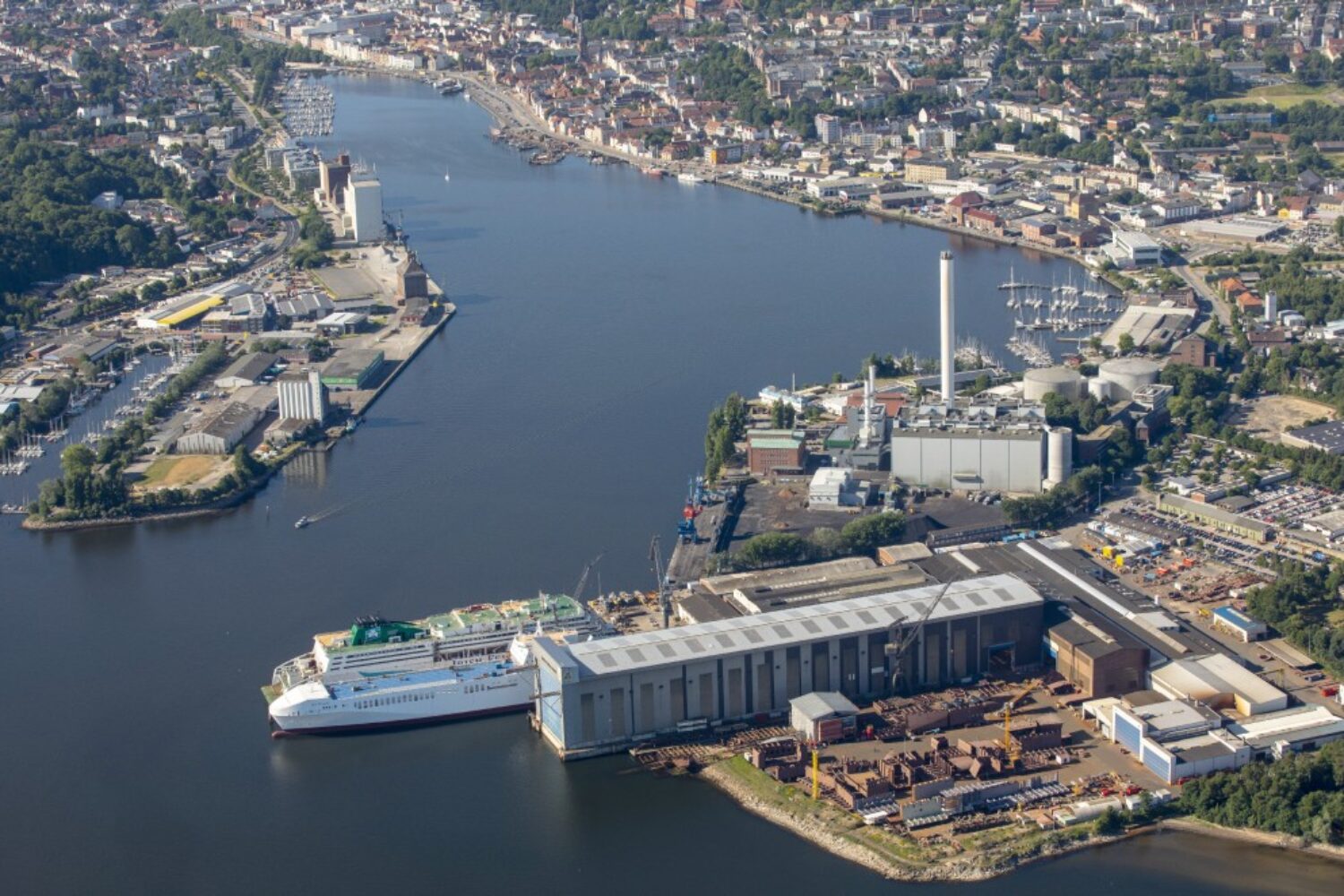Crisis meeting in Kiel: FSG owner Windhorst was there, as was the state’s Minister of Economic Affairs and the Maritime Coordinator. In the end, there was a glimmer of hope.
The shipyard alliance of FSK and Nobiskrug in Flensburg and Rendsburg is not coming to rest. There are no orders in sight, and wages have been slow to flow again recently. After a crisis meeting in Kiel, all parties involved are quietly hopeful: the investor for guarantees, the politicians for the preservation of the 600 jobs and the workforce for new orders.
According to owner Lars Windhorst, €300 million has already been invested in the two shipyards since the takeover, “pure risk capital with no return for us”, as he emphasized in front of television cameras after a three-hour meeting at the Ministry of Economic Affairs. He was also prepared to continue investing. This is because he sees “clear and concrete prospects” on the part of the federal and state governments.
FSG hopes for guarantees
Specifically, it is about guarantees. These would be needed if there are new orders. For example, a few kilometers to the east at the Neptun shipyard in Rostock, for which the state of Mecklenburg-Vorpommern wants to secure a major order accordingly.
There was no specific mention of this in Kiel. All sides agreed not to disclose the specific content of the talks. The coordinator of the federal government, Dieter Janecek, once again referred to the need for the expansion of offshore wind farms to a capacity of 300 GW in Europe and investments in the three-digit billion range, which would be necessary for around 130 converter platforms.
Offshore orders for FSG?
However, Janecek left open the extent to which FSG and Nobiskrug could benefit from this. Neither Flensburg and certainly not Rendsburg have played any role in the plans to generate more added value in Germany.
The meeting had come about on the initiative of IG Metall. Recently, there had again been signs of alarm at the shipyards. October wages were reportedly only paid a few days ago. First authorized representative Michael Schmidt now reacted positively: “Mr. Windhorst has explained what he now intends to do specifically and in the short term with the two sites.”
Recently, there had been hardly any positive news from the two shipyards. The last new build for the time being was delivered and sold late, no new orders in sight so far, the departure of the managing director, projects that were thought to be certain in limbo (see keyword) and once again no payments to the workforce. “The difference now is that, unlike four or eight weeks ago, we have a sustainable perspective,” Windhorst dictated into the microphones.













